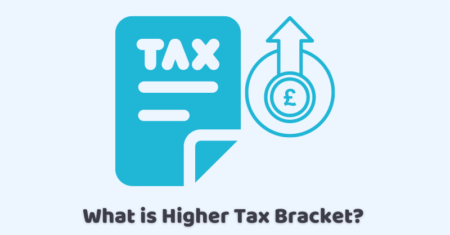
Filing your income tax return is a legal and financial obligation that you need to fulfill every year if you have income that is subject to federal taxation. Filing your income tax return correctly and on time can help you avoid penalties, claim refunds, and plan your finances.
In this article, we will explain what an income tax return is, who needs to file one, how to file one online or on paper, what deadlines and penalties apply, and what documents and information you need to prepare your income tax return.
Related articles
2- Gross Income
What is an income tax return?
An income tax return is a form that you use to report your income and deductions to the Internal Revenue Service (IRS) for a specific tax year. A tax year runs from January 1 to December 31 of the same year. For example, the tax year 2022 covers the period from January 1, 2022 to December 31, 2022.
An income tax return consists of a main form (Form 1040) and additional schedules (Schedule 1 to Schedule 3) that you may need to fill in depending on your sources of income and deductions. For example, if you have income from self-employment, you need to fill in Schedule C.
An income tax return allows the IRS to calculate how much tax you owe or are owed based on your income and deductions. You may also need to pay self-employment tax or alternative minimum tax if you are self-employed or have certain types of income.
Who needs to file an income tax return?
You need to file an income tax return if you:
- are a U.S. citizen or resident alien and have income that meets or exceeds the filing threshold for your filing status and age
- are a nonresident alien and have income from U.S. sources that is not exempt from U.S. tax
- are a dual-status alien and have income from both U.S. and foreign sources
- are a dependent of another taxpayer and have income that meets or exceeds the filing threshold for dependents
- have received any of the COVID-19 relief payments or credits, such as the economic impact payments, the recovery rebate credit, or the advance child tax credit
The filing threshold is the minimum amount of gross income that requires you to file an income tax return. Gross income is your total income before any deductions or adjustments. The filing threshold varies depending on your filing status and age. For example, for the tax year 2022, the filing threshold for single filers under 65 years old is $12,5501.
You can check if you need to file an income tax return using the IRS online tool2.
How to file an income tax return online or on paper?
You can file your income tax return online or on paper. Filing online has several benefits, such as:
- it is fast, easy, and secure
- you can use free or low-cost software to prepare and e-file your return
- you can get your refund faster by choosing direct deposit
- you can track the status of your return and refund online
- you can avoid errors and omissions by using electronic validation
To file online, you need to choose an IRS-approved e-file provider3 that suits your needs and budget. You can use IRS Free File4 if your adjusted gross income is $72,000 or less. Adjusted gross income is your gross income minus certain adjustments, such as student loan interest or IRA contributions. You can also use IRS Free File Fillable Forms5 if your adjusted gross income is more than $72,000 and you are comfortable filling out forms without software assistance.
To file on paper, you need to fill in the Form 1040 and any schedules that apply to you. You can download the forms from the IRS website or order them by phone. You can also use commercial software to fill in your paper return. You need to mail your paper return to the IRS address that corresponds to your state.
What deadlines and penalties apply?
The deadline for filing your income tax return and paying your tax bill is April 15 of the following year, unless it falls on a weekend or a holiday. In that case, the deadline is extended to the next business day. For example, for the tax year 2022, the deadline is April 18, 2023.
If you cannot file or pay by the deadline, you can request an extension of time to file or pay. To request an extension of time to file, you need to file Form 4868 by the original due date of your return. This will give you an extra six months to file your return, but not to pay your bill. To request an extension of time to pay, you need to contact the IRS before the due date of your payment and explain why you cannot pay. You may qualify for a short-term or long-term payment plan or an offer in compromise.
If you do not file or pay by the deadline or the extended deadline, you will have to pay penalties and interest. The penalties are:
- 5% of the unpaid tax for each month or part of a month that your return is late, up to a maximum of 25%
- 0.5% of the unpaid tax for each month or part of a month that your payment is late, up to a maximum of 25%
- $435 or 100% of the unpaid tax, whichever is less, if your return is more than 60 days late
You may also have to pay interest on any unpaid tax from the due date of the return until the date of payment. The interest rate is determined quarterly and is the federal short-term rate plus 3%.
You can avoid or reduce the penalties and interest if you have a reasonable cause for not filing or paying on time, such as a serious illness, natural disaster, or fire.
What documents and information do you need to prepare your income tax return?
To prepare your income tax return, you need to keep records of your income and deductions for the tax year. You may need the following documents and information, depending on your sources of income and deductions:
- W-2 Wage and Tax Statement, 1099-MISC Miscellaneous Income, or 1099-NEC Nonemployee Compensation, if you have income from employment or self-employment
- 1099-INT Interest Income, 1099-DIV Dividends and Distributions, 1099-B Proceeds from Broker and Barter Exchange Transactions, or 1099-R Distributions from Pensions, Annuities, Retirement or Profit-Sharing Plans, IRAs, Insurance Contracts, etc., if you have income from savings, investments, dividends, interest, or retirement
- Schedule K-1 Partner’s Share of Income, Deductions, Credits, etc., if you have income from a partnership, S corporation, estate, or trust
- Schedule E Supplemental Income and Loss, if you have income from rental property or royalties
- Form 2555 Foreign Earned Income or Form 1116 Foreign Tax Credit, if you have income from foreign sources
- Form 8949 Sales and Other Dispositions of Capital Assets or Schedule D Capital Gains and Losses, if you have sold any assets such as stocks or property
- Form 1098 Mortgage Interest Statement, Form 1098-E Student Loan Interest Statement, Form 1098-T Tuition Statement, or Form 1098-C Contributions of Motor Vehicles, Boats, and Airplanes, if you have paid any mortgage interest, student loan interest, tuition fees, or charitable donations
- Form 1095-A Health Insurance Marketplace Statement, Form 1095-B Health Coverage, or Form 1095-C Employer-Provided Health Insurance Offer and Coverage, if you have had any health insurance coverage
- Form 8962 Premium Tax Credit or Form 8965 Health Coverage Exemptions, if you have claimed any premium tax credit or health coverage exemptions
- Notice 1444 Your Economic Impact Payment or Notice 1444-B Your Second Economic Impact Payment, if you have received any economic impact payments
- Letter 6417 Advance Child Tax Credit Payments in 2022 – Account Statement (available in January 2023), if you have received any advance child tax credit payments
You do not need to attach any receipts, statements, or other paperwork with your income tax return unless the IRS asks for them. However, you need to keep them for at least three years after the date you file your return in case the IRS audits your return.
Filing your income tax return is a legal and financial obligation that you need to fulfill every year if you have income that is subject to federal taxation. Filing your income tax return correctly and on time can help you avoid penalties, claim refunds, and plan your finances.
You can file your income tax return online or on paper using the IRS service or commercial software. You need to meet the deadline for filing and paying your bill. You also need to keep records of your income and deductions for the tax year.
We hope this article has helped you understand how to file your income tax return in the USA. If you have any questions or comments, please feel free to leave them below.
About the Author






0 Comments